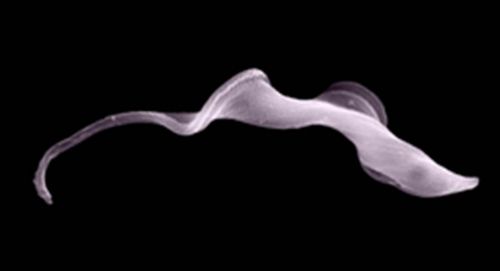
13/12/2017
ALBA Synchrotron Works for People’s Health
ALBA Synchrotron Works for People’s Health
Two recent works remind us that ALBA synchrotron is a very valuable tool to help develop new drugs.
On one hand, using the MIRAS beam line of the ALBA synchrotron (infrared radiations), researchers from the Universitat Autònoma de Barcelona (UAB) and the ALBA Synchrotron have demonstrated in a paper the capability of metalosomes - aggregates made of phospholipids and metal complexes - to interact with cells and release carbon monoxide in a controlled way (CO release can be beneficial because of its anti-inflammatory, vasodilator and cardio protective properties).
On the other hand, in another publication, a team led by researchers from the Universitat Politècnica de Catalunya (UPC) has unveiled the mechanism of action of two drugs, FR60 and JNI18, which cure 100% of mice with sleeping sickness. Using X-rays of the ALBA XALOC beam line, they have observed how these drugs perfectly stacked on the Trypanosoma brucei’s DNA, the parasite that causes the disease (image). Blocking and inflicting specific damage on its DNA, the parasite cannot reproduce and finally dies after 4-5 days.
On one hand, using the MIRAS beam line of the ALBA synchrotron (infrared radiations), researchers from the Universitat Autònoma de Barcelona (UAB) and the ALBA Synchrotron have demonstrated in a paper the capability of metalosomes - aggregates made of phospholipids and metal complexes - to interact with cells and release carbon monoxide in a controlled way (CO release can be beneficial because of its anti-inflammatory, vasodilator and cardio protective properties).
On the other hand, in another publication, a team led by researchers from the Universitat Politècnica de Catalunya (UPC) has unveiled the mechanism of action of two drugs, FR60 and JNI18, which cure 100% of mice with sleeping sickness. Using X-rays of the ALBA XALOC beam line, they have observed how these drugs perfectly stacked on the Trypanosoma brucei’s DNA, the parasite that causes the disease (image). Blocking and inflicting specific damage on its DNA, the parasite cannot reproduce and finally dies after 4-5 days.
More news
31/03/2016
ICN2 Graphene-Based Sensors for Biomedicine and Brain-Machine Interfaces
21/03/2016
Halal Certification Awarded to Natura Bissé
16/03/2016
SENER is back to Mars
09/03/2016
Barcelona, 2016/17 Top European City for FDI Strategy
03/03/2016
NCD Beamline at ALBA Synchrotron: When X-Rays Make Chocolate Speak
24/02/2016
Barcelona DC Cluster from BSP at the 2016 Mobile World Congress Brokerage Event









